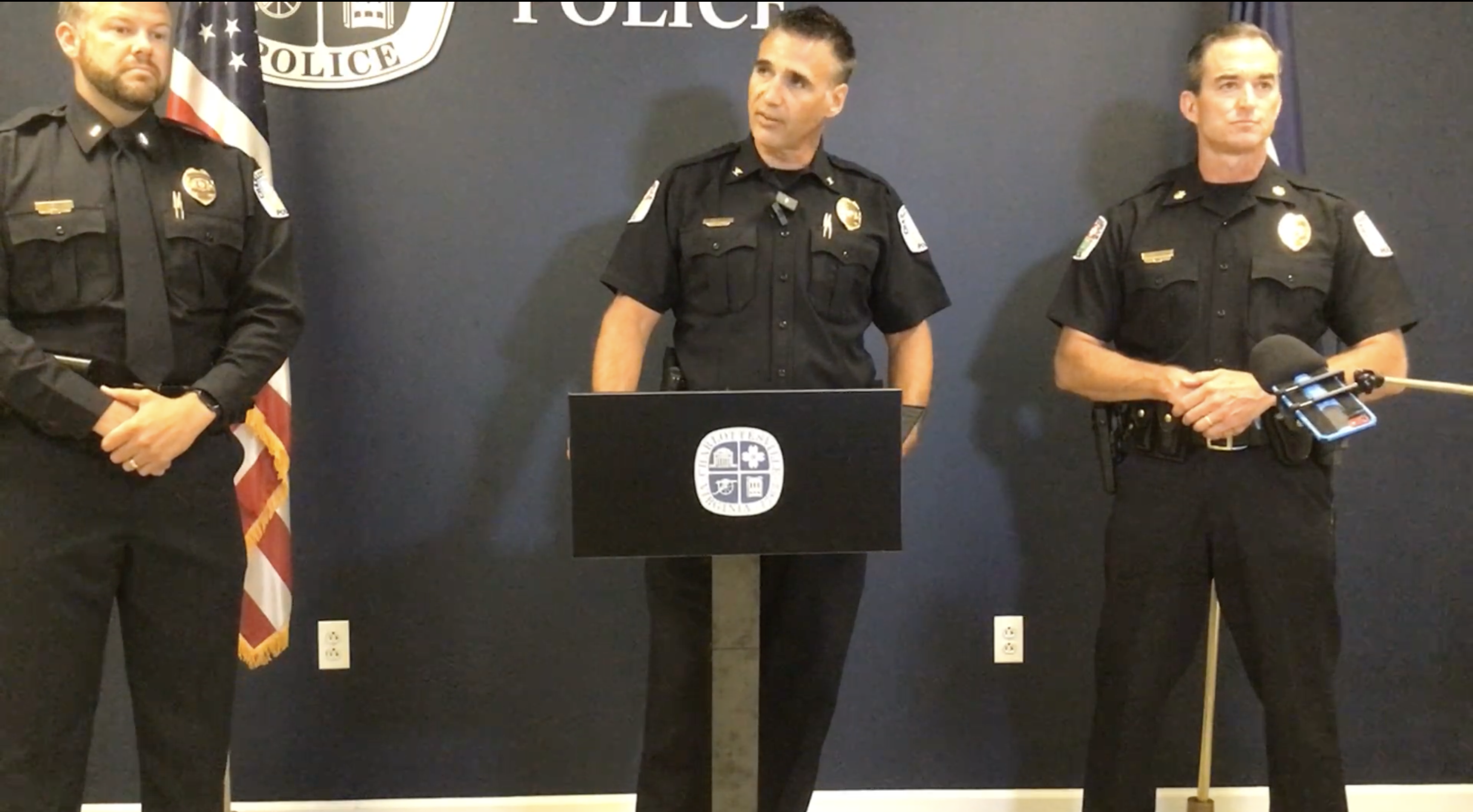Few in the criminal justice system who first encountered Frank E. Brown Jr. thought he was going to make it through the Charlottesville/Albemarle Drug Court Program. Though he was admitted to the program after pleading guilty to a drug possession charge, thereby staying out of jail, Brown had to submit to frequent drug testing, go through substance abuse treatment, make regular court appearances and keep a job. He also had to stay away from drugs and booze for at least a year, and several times Brown was sanctioned for using alcohol, prolonging his time in the program and making it more likely he’d get kicked out and have to serve his original sentence.
 Velda Conley, Amy Hicks and Frank Brown graduated from Drug Court last week. |
But there he stood in Charlottesville Circuit Court on July 26, roughly 29 months after that possession charge—not hearing a judge’s sentence but his praise. His Drug Court officer credited the birth of Brown’s daughter for turning him around, and here was a man, who came in angry at the legal system, smiling in a courthouse.
"We’re expecting great things from him," said Judge Edward Hogshire. Brown’s mother was there to give him a standing ovation, one of many public witnesses of Brown’s recovery from drug addiction.
The occasion was the Drug Court graduation, held almost monthly. Brown was one of three to graduate from a program that enrolls about 45 and is the second oldest in Virginia. Speaking at the graduation, State Senator Creigh Deeds threw around figures to justify the program: It costs $6,000 per person for Drug Court versus at least $22,000 for a year of incarceration—and jailed drug offenders are five times more likely to offend again within a year.
"I am proud of you," said Merie Raglund, senior Drug Court officer, to her client Velda Conley at graduation. "You’ve come a long way, baby."
C-VILLE welcomes news tips from readers. Send them to news@c-ville.com.




